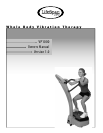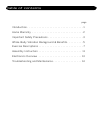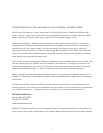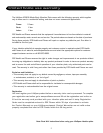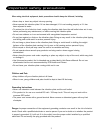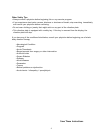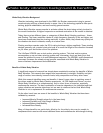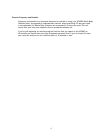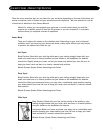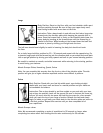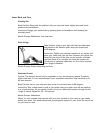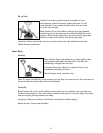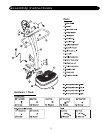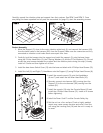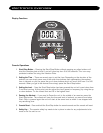
5
Whole Body Vibration Background
Vibration technology was developed in the 1960’s for Russian cosmonauts trying to prevent
muscle atrophy and loss of bone density in space. Use of the technology
spread to elite sports
training, physical rehabilitation, and more recently general exercise.
Whole Body Vibration causes muscles to activate without the brain being actively involved in
the muscle contraction. At higher frequencies a sustained contraction of the muscle is obtained.
Today, there are two different types or categories of Whole Body Vibration machines – Linear
and Pivoting. The linear machines vibrate at a high frequency, generally 25 Hz and higher and
have lower amplitudes than the pivoting machines. In other words, they vibrate very quickly but
the vibrations are short in distance, usually at or below 5mm.
Pivoting machines operate under the 25 Hz rating but have a higher amplitude. These pivoting
designs generally use a central pivot point and as a result the height of the vibration increases
as you move your feet further out on the platform.
The LifeSpan VP1000 uses a dual motion pivoting system. This dual motion system
encompasses an up and down pivoting system and a secondary front and back pivot that
causes the platform to move in a multi-dimensional sequence. The VP1000’s multi-dimensional
movement increases the already strong benefits associated with Whole Body Vibration in
terms of balance improvement and stabilization.
Benefits of Whole Body Vibration
A significant amount of research has already been completed to analyze the benefits of Whole
Body Vibration. This research has ranged from improvements in strength, flexibility and joint
range of motion, bone density, hormone levels, body composition and many other areas.
While this research identifies many real benefits, it doesn’t come close to matching some of
the claims made by Whole Body Vibration proponents. At PCE Health and Fitness, we view
Whole Body Vibration as a complementary tool to other forms of exercise, especially
cardiovascular exercise. The best combination of exercise depends on the individual and their
unique situation and exercise objectives, but we want to reinforce the fact that Whole Body
Vibration is not a replacement for cardiovascular exercise.
On the other hand, here are some of the benefits to Whole Body Vibration that have been
validated by research.
• Improved Muscle Strength primarily in the lower body
• Improved Flexibility and Joint Range of Motion
• Improved Balance and Mobility
• Increased Bone Density
Many of these benefits are particularly effective for the elderly who may be unable to
complement their exercise with more traditional forms and cardiovascular and strength training.
whole body vibration background & benefi ts



